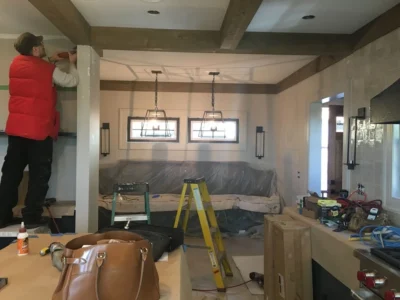Residential to Commercial Building Conversions
Converting a residential building into a commercial establishment can be a complex process with various potential issues and challenges. These issues can involve legal, structural, zoning, and community concerns. Here are some of the common problems that may arise.
Must Verify List
- Zoning and Permits: One of the primary issues when converting a residential building to a commercial establishment is zoning. Local zoning regulations may not permit certain types of businesses in residential areas. You may need to apply for a change in zoning or obtain special permits, which can be a lengthy and uncertain process. Failure to comply with zoning regulations can lead to legal issues and fines.
- Building Code Compliance: Commercial properties often have different safety and accessibility requirements than residential buildings. Adapting the structure to meet these codes can be costly and complex. This may involve installing fire suppression systems, ensuring proper wheelchair accessibility, and making other safety upgrades.
- Parking and Traffic Concerns: A change to a commercial establishment can lead to increased traffic and parking demands in the area. This can result in conflicts with neighbors and local authorities, as well as the need for additional parking facilities, which can be costly.
- Environmental Considerations: Some types of commercial establishments, such as restaurants, may require specific environmental permits and systems to manage waste disposal, ventilation, and more. Ensuring compliance with environmental regulations is crucial.
- Community Opposition: Neighbors and local residents might oppose the conversion of a residential property to commercial use due to concerns about increased noise, reduced property values, and changes in the character of the neighborhood. Managing community opposition and seeking their support can be challenging.
- Historic Preservation: If the residential building is in a historically significant area, there may be additional restrictions and requirements related to preserving its architectural and historical features when converting it to a commercial space.
- Cost and Budgeting: Converting a residential building to a commercial establishment can be expensive. The costs can include renovations, compliance with building codes, zoning changes, and more. It’s essential to have a clear budget and financial plan in place to avoid financial difficulties during the conversion process.
- Lease or Ownership Issues: If the property is owned by someone else, you may need to negotiate a lease or purchase agreement. Ensuring that the terms are suitable for your commercial use and that all parties agree can be a complex process.
- Utilities and Infrastructure: Commercial properties often have different utility requirements than residential ones. This may involve upgrading or altering utility connections, electrical systems, plumbing, and HVAC systems.
- Legal and Insurance Considerations: Changing the property’s use may have implications for insurance coverage and liability. You may need to update your insurance policies to reflect the new commercial use and ensure you are adequately protected in the event of any accidents or incidents.
New Commercial Build Vs Renovating Residential
To navigate these issues successfully, it’s crucial to engage with local authorities, consult with legal experts, architects, and contractors, and conduct thorough due diligence before proceeding with the conversion. Working with professionals who understand the local regulations and requirements is essential to minimize potential problems and ensure a smooth transition from residential to commercial use.
In the final analysis, it may be more economical to build-to-suite commercial building rather than renovating an existing residential building to comply with all the requirements.

